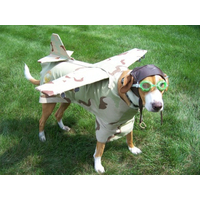Airline Requirements for Pet Carriers

For internation flights, it's best to check directly with the airline that you are flying with as each airline will differ with their pet and quarantine requirements. We recommend that you check the requirements first before you book your own tickets, so that you don't risk getting stuck with a difficult airline.
For domestic flights, Jetstar and Tiger do not accept pets, so it is best to fly with either Qantas or Virgin.
Both Qantas and Virgin have listed their pet travel requirements on their websites, and their links are here:
The Key Points
- Except for a service dog e.g. a guide dog, your pet will not be travelling in the passenger cabin
- Don't just rock up at the ariport with a dog, each flight has limited spots for pet crates, so book in advance
- Your pet must be in good health otherwise the airport might reject it
- For short domestic flights, let your pet have a drink before checking in as there may be no water bowls inside the crate
- All pets must travel in a pet carrier crate, you can either hire one with the airline's partners, or you bring your own. From experience, it's definitely worth buying your own airline approved crate if:
- You have a small dog under 10kgs, because the size is quite small and can be used at home and in the car. Hiring cost is usually fairly similar to buying, so it's probably worth buying one.
- Crates for dogs up to about 15kg are starting to become bulky but still manageable. Probably cheaper to hire than buy, but if you fly regularly or normally use a crate, it may still be worth having your own
- For large dogs as well as some powerful dogs, many airlines require a non-collapsible steel crate with thick wiring, which could be a nightmare at home or in the car due to its size. So more people tend to swing towards hiring.
- For a crate to be airline approved, it generally needs:
> To be big enough so that your dog can sit up straight, lie down flat and turn around inside
> To have an absorbent mat inside
> To be escape-proof
> While some airlines may accept collapsible designs, majority of airlines prefer non-collapsible two-part plastic crates that are secured by metal bolts in the middle. In fact, airlines like Virgin Australia only accepts this type of crate

 Collapsible
Collapsible